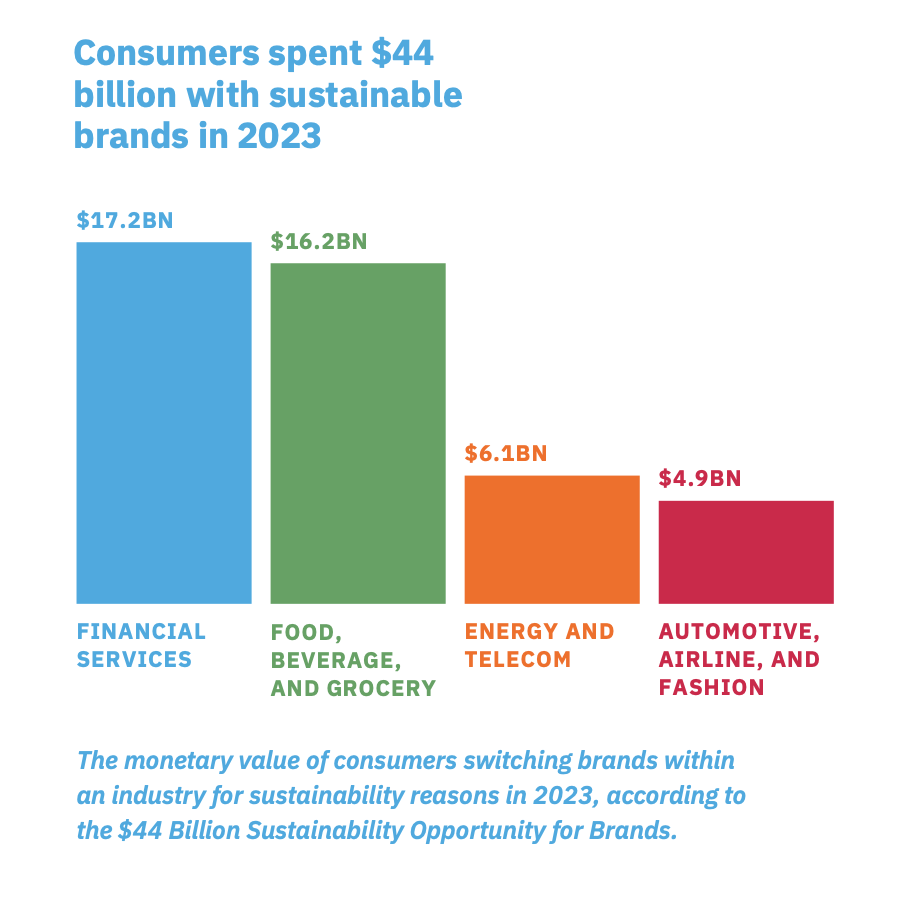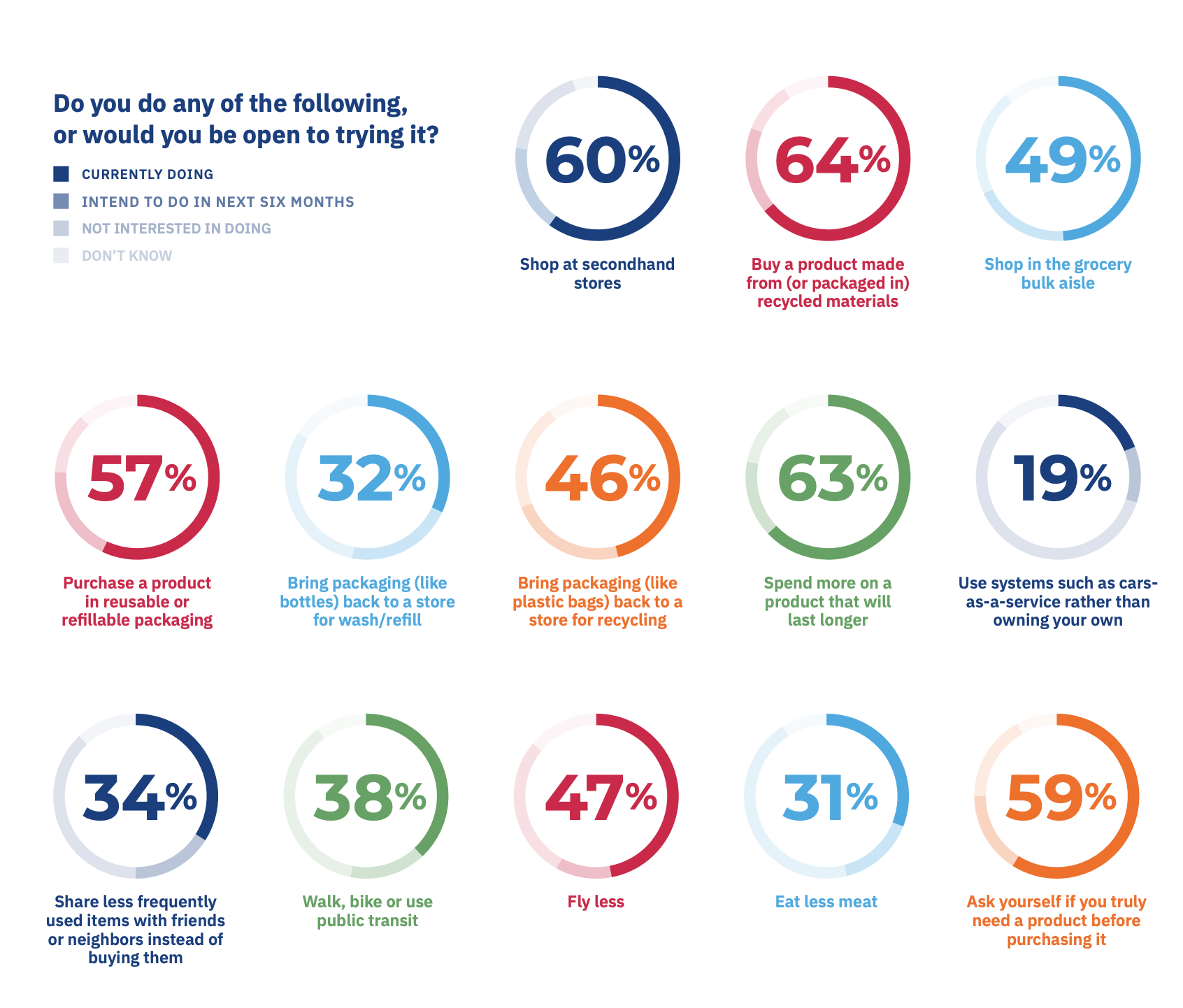
Consumers are all ears when it comes to corporate sustainability, but many brands are staying quiet. (Image credit: CurvaBezier/Adobe Stock)
Over 80 percent of companies plan to spend more on sustainability efforts like energy efficiency, emissions reduction and pollution prevention this year. But many of them won't talk about it.
As global regulators crack down on greenwashing and the political pushback against environmental, social and governance (ESG) principles in the U.S. continues, a growing segment of companies are staying mum about their sustainability work.
But this play-it-safe strategy is the opposite of what stakeholders are looking for. Among U.S. consumers, 69 percent agree businesses should communicate more — not less — about what they're doing in the areas of sustainability and social impact, according to new research from TriplePundit, our parent company 3BL and the research technology firm Glow. That includes 75 percent of Gen Z and 74 percent of millennials who want to see businesses communicate more about their efforts and progress.

What's driving the $44 billion switch to more sustainable brands?
Our latest research builds on the findings of The $44 Billion Sustainability Opportunity report we released with 3BL, Glow and panel partner Cint earlier this year. That first-of-its-kind analysis attached a dollar figure to the value of consumers switching brands for sustainability reasons — adding up to more than $44 billion across 12 industries in the U.S. alone. A quarter of the consumers we surveyed even stopped doing business with a brand in 2023 because of its social or environmental behavior.
The 2024 Consumer Insights & Sustainability Benchmark takes a closer look at what's driving this billion-dollar shift, how consumers define companies as sustainable, and what they expect from the business world this year.
Read on for some of the standout findings, including how consumers perceive companies that stay quiet, the behaviors they're adopting for the sake of sustainability and the many reasons why the "anti-ESG" movement is failing to resonate.

Quiet companies leave public perception up to chance
A growing segment of consumers are willing to seek out and validate a company's sustainability information on their own. Nearly half said they search for information about businesses’ sustainability credentials using tools like Google (36 percent) or use sustainability rankings or lists available online (9 percent).
If companies choose not to communicate, consumers will make their own assumptions, and they may not always be positive. Sixty-eight percent of consumers agree with the statement: “Companies that actively communicate their sustainability efforts have a more positive impact on the environment and society, compared to those that do not.” Only 10 percent disagreed. Meanwhile, over 40 percent of consumers assume quiet companies are either “not doing anything” to reduce their environmental impact or “need more substantial environmental initiatives.”
"What we learn is that greenhushing isn’t always a huge detriment to businesses, but it misses the opportunity for business leaders to tell their own sustainability stories and be recognized by consumers," TriplePundit contributor Andrew Kaminsky wrote in the report. "Instead, with the split on how consumers perceive silent companies, business leaders essentially relinquish control and leave public perception up to chance."
Talking about failure is good, not bad
Companies are often reluctant to talk about things that didn't go to plan. If they miss a sustainability target or sunset a social impact program after little success, it seems easier to quietly remove messaging about the effort from their websites and never mention it again. But consumers say they don't hold it against businesses when they talk about failure. Actually, it's quite the opposite.
We posed a scenario to consumers: “A company launched a program aimed at reducing its social and/or environmental impact, but it wasn’t effective. The company scrapped the program, and leadership decided to talk about the failure and what they learned with their customers and other stakeholders.”
The majority of respondents (44 percent) said they'd think better of the company "because they were transparent." Another 19 percent wouldn't feel strongly either way, saying: "Not everything is going to work, and that’s not a big deal to me." Only 14 percent would think less of the company because it hit a bump and chose to talk about it.
"It’s all about how business leaders react to failure or underperformance," Kaminsky wrote. "If something didn’t work, discuss what you learned from it and the changes you plan to make. Looking at problems through a lens of progress and learning is better than not reporting the failure or completely ignoring it."

Consumers are willing to change their behavior for sustainability, and they want companies to help
While some in the business world question whether Americans are "ready" to change their behavior for the sake of sustainability, this narrative is increasingly at odds with how people really feel.
Over half of Americans say they’ve already made lifestyle changes in order to reduce their impact on people and the planet. Consumers are shopping secondhand, choosing products made from recyclable materials, and seeking out consumables in reusable or refillable packaging at rates higher than we observed in 2023. Nearly half say they are flying less to reduce their carbon footprints, and around a third are eating less meat.
Don't let the "anti-ESG" talk slow you down
"Anti-ESG" rhetoric has become more common on political campaign trails and cable news channels over recent years. Some U.S. states have even moved to restrict financial firms deemed to be associated with ESG investments from doing business within their borders. Naturally, the noise has some business leaders spooked. But when it comes to the U.S. public, anti-ESG messaging isn't exactly hitting home.
For starters, only around a quarter of Americans even know what ESG is, with most simply using the term "sustainability" to describe efforts to safeguard communities and the environment.
For those who do recognize the term ESG, perception is mostly positive: 69 percent of consumers said businesses should use ESG principles to quantify and improve their impact on people and the environment, compared to only 16 percent who said they shouldn't. Nearly 89 percent of consumers who recognized the term ESG said their perception of whether businesses should use ESG principles has either increased or stayed the same over the past year, with 42 percent saying: “I feel more strongly now than I did a year ago that businesses should be using ESG principles.”
How to engage consumers
Along with insight into public preferences, the 2024 Consumer Insights & Sustainability Benchmark includes best practices for reaching and connecting with consumers based on what they told us they'd like to see. That includes how to combine data with storytelling to drive consumer trust, where to reach different audiences with sustainability messaging, and how to position corporate sustainability efforts through a solutions lens. Check out the full report for our recommendations.

Mary has reported on sustainability and social impact for over a decade and now serves as executive editor of TriplePundit. She is also the general manager of TriplePundit's Brand Studio, which has worked with dozens of organizations on sustainability storytelling, and VP of content for TriplePundit's parent company 3BL.














